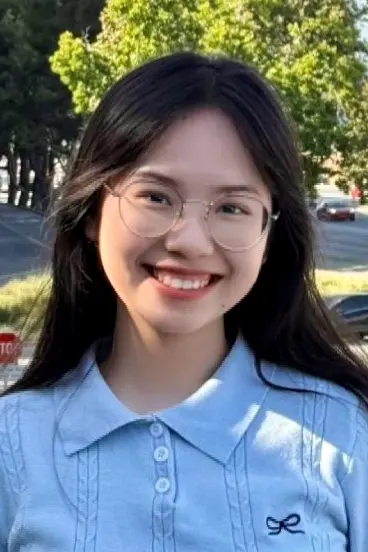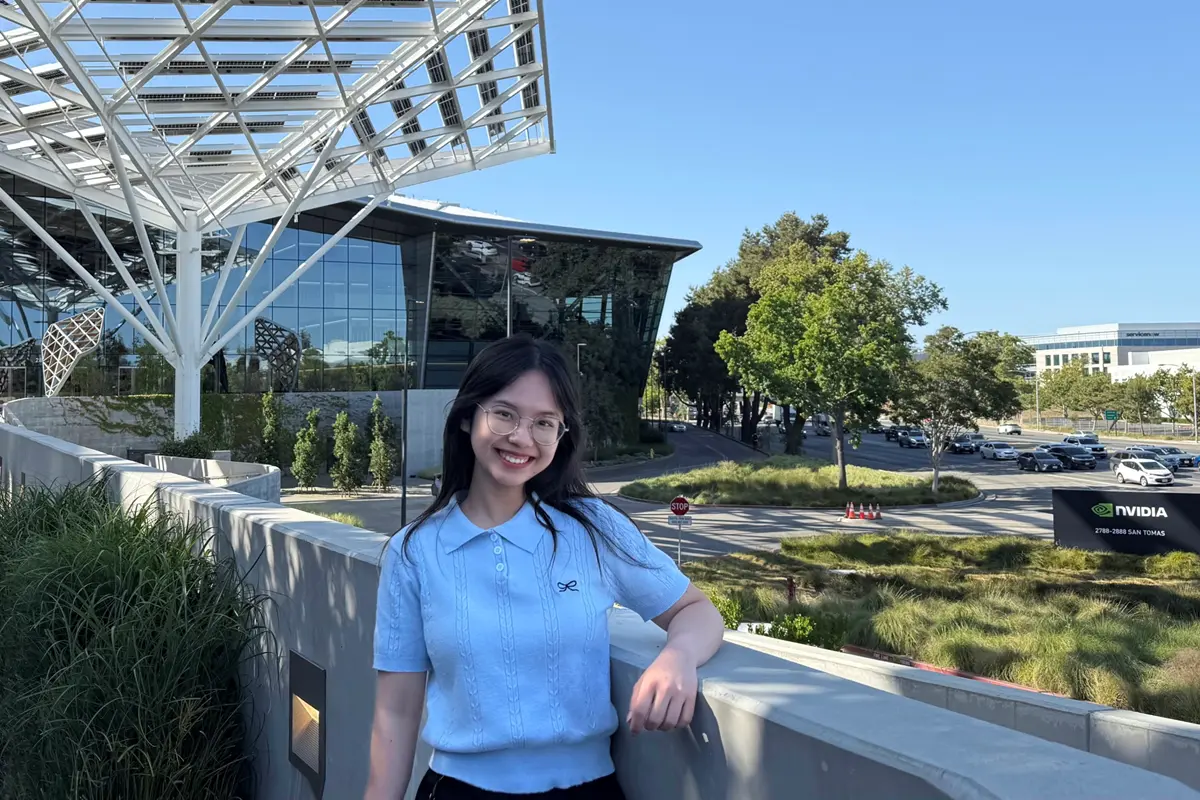Nvidia, the tech giant whose chips are the backbone of the artificial intelligence revolution, takes its name from the Latin word “invidia,” which means “envy.”
It’s safe to say that computer science major Jessica Vu’s co-operative (co-op) education job at Nvidia’s Silicon Valley headquarters is the envy of college students everywhere.
A rising senior in the Kennedy College of Sciences, Vu is in the midst of an eight-month paid co-op at the $3.4 trillion company, which is running neck-and-neck with Microsoft and Apple for the title of “Most Valuable Company in the World.”
“It’s crazy to think that I’m here,” says Vu, who moved in January to Santa Clara, California, for the co-op. She is part of the performance engineering team for Nvidia’s DriveSim platform, its simulator for developing and validating autonomous vehicle technologies.
An international student from Vietnam, Vu discovered the co-op opportunity last fall on LinkedIn. Although she had previously worked with driving simulation software during an internship at Bosch Global Software Technologies in her hometown of Ho Chi Minh City, she didn’t expect a hardware company like Nvidia to be interested in someone with a software background.
So she was surprised to make it through two rounds of interviews — and stunned to receive the email (while studying for finals) offering her the co-op.
“I don’t even know if it was a happy feeling. It was just … unbelievable,” she says. “I said to myself, ‘Is this a real email? Is this spam or something?’”
But it was real, and soon, Vu was at Nvidia, benchmarking performance for the DriveSim platform and building automation tools to streamline and scale those processes. Using technologies like Vue.js, Flask and Docker, she and her team have already managed to cut execution times by 30%.
“Automation is the most valuable skill I’ve learned,” she says. “Anything you do can be automated, so having that skill opens new career opportunities for me.”
Vu gets to attend company-wide meetings at which CEO Jensen Huang shares Nvidia’s vision for the future of AI and beyond.
“Those are the kind of talks you don’t get to hear outside the company,” says Vu, who sees the co-op as more than a résumé-builder.
“It’s taught me that you have to be continuously learning, even outside of class,” she says. “In tech, especially in software, you have to update your knowledge every day, because there's always new tools and new frameworks.”
When Vu returns to campus in the fall for her senior year, she looks forward to working out at the Campus Recreation Center, relaxing with a book on South Campus and attending UMass Lowell hockey games with friends.
“I enjoy UMass Lowell,” she says. “I’ve made really good friends who make me feel welcome.”
After graduation, Vu hopes to land a job in the United States, but she’s also open to opportunities abroad. While she didn’t originally envision working in the hardware space, the experience at Nvidia has taught her that it’s one field that is relatively safe from AI disruption.
“One of the limitations of AI is working on hardware,” she says. “If you want to work in a field where you know you’re not threatened by AI, then hardware is a good way to go.”


